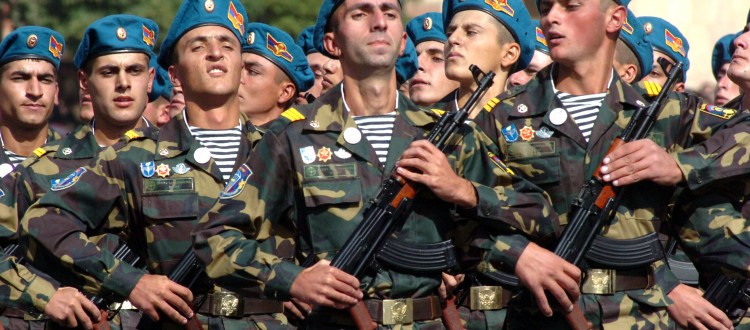Peace Dialogue’s request to partially annul Ministry of Defence executive order rejected by Administrative Court
The Administrative Court of Armenia rejected Peace Dialogue NGO’s complaint challenging the legitimacy of the classification of secret information, which includes information regarding fatalities in the Republic of Armenia Armed Forces from 1994-2014.
| Suggested Reading | Conflict Background | GCCT |
By Edgar Khachatryan
In a court hearing on March 11, 2016 the Administrative Court of Armenia rejected Peace Dialogue NGO’s complaint challenging the legitimacy of the classification of secret information mentioned in Section 17, Point 42 and 43 in the list provided by Executive Order N9 of the Ministry of Defense, dated July 9, 2015, and to partially annul the executive order. The order calls for the classification of information mentioned in the extended list provided by Executive Order N9, which involves official information regarding the fatalities in the Republic of Armenia Armed Forces from 1994-2014. This includes the full names of the deceased soldiers, the location of the incident, the date, unit number, unit commander’s full name and title, the cause of death and all other unrestricted information.
According to Peace Dialogue, the classification of this information severely restricts the abilities of the public to exercise oversight over the activities of the Republic of Armenia’s Ministry of Defense, and clearly separates the Ministry of Defense from the policy of transparency of state bodies adopted by Armenia.
The details of the complaint charged that the information mentioned is not included in the list of the encrypted information provided by the Republic of Armenia Law on State and Official Secrets, that it does not fit into the formulations prescribed by the law and does not ensure the implementation of the provisions of the law. That the encryption of the information mentioned does not aim at preventing possible arbitrariness of the law and does not guarantee the rights of the persons or the groups of people as it is provided by the Republic of Armenia Law on Fundamentals of Administrative Action and Administrative Proceedings.
Furthermore, that it impedes the interests of national security, public order, crime prevention, public health and morality, constitutional rights and freedoms, and the protection of honor and reputation of others since, according the Armenian Constitution, the fundamental rights and freedoms of the citizens can be restricted only by the mentioned reasons and that it contradicts the Armenian Constitution, the Republic of Armenia Law and the principles of international agreements ratified by Armenia.
The court stated that, “assessment of the emergency incidents and the accidents in the armed forces and the short descriptions revealing the causes of these incidents, as well as the information disclosing the official investigation materials prepared based on the illegalities that were the result of such incidents are not included in the restrictions of the listing of information as state and official secrets specified in Article 10 of the RA Law on ‘State and Official secrets‘.” However, taking into consideration the (military) nature of the information mentioned in Point 42 and 43 that the executive order refers to and the nature of this information, the Court found that in the present military and political situation this information may include details, the disclosure of which, may present threats to the security of the Republic of Armenia. The decision of the Administrative Court can be appealed to the RA Court of Appeal within one month after its publication.
Peace Dialogue NGO strongly disagrees with the Court ruling as it is not clear how Armenia’s safety can be jeopardized and intends to appeal the verdict. According to lawyer for the case, Mushegh Shushanyan, by issuing the executive order N9 dated July 9, 2015, as well as the provisions that were challenged in the complaint, the RA Ministry of Defense; 1) exceeded its powers, particularly by including in the mentioned extended list the information that is not listed in the exhaustive list of state and official secrets provided by Article 9 of the RA Law on State and Official Secret and, thus, 2) the Minister usurped the legislative power, since by including in the extended list the information that is not provided by the exhaustive list of state and official secrets he provided a basis for a restriction of a fundamental right guaranteed by the Constitution (this may be prescribed only by law).
After examining the verdict of the Administrative Court lawyer Mushegh Shoushanyan concludes that such a Court is a threat to the security of the Republic of Armenia itself.
Edgar Khachatryan is the director of Peace Dialogue, a member of the Global Coalition for Conflict Transformation. He specializes in international peacebuilding trainings, consultancy and expertise in gender and peace processes, violence prevention, and post-war stabilization and recovery.
The views expressed in this article do not necessarily reflect those of TransConflict.



















